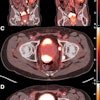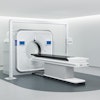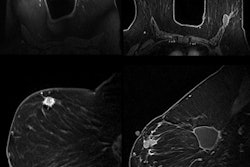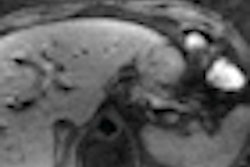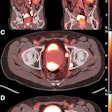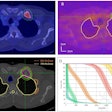Patients who received radioembolization with yttrium-90 (Y-90) beads for metastatic colorectal cancer that had spread to the liver lived almost a year longer than expected, according to data presented at the Symposium on Clinical Interventional Oncology.
Dr. Dmitry Goldin, a radiology resident at Beaumont Hospital in Royal Oak, MI, and lead author of the study, reported that patients who underwent the Y-90 radioembolization procedure survived about 11 to 12 months longer than historical survival estimates for patients who receive standard care with chemotherapy. The symposium was held in Miami Beach, FL, on January 18 and 19 in collaboration with the International Symposium on Endovascular Therapy (ISET).
The retrospective study included 39 patients who received the radioembolization procedure, which injects Y-90 beads through a catheter into the arteries feeding the liver tumors. Of the 39 patients, 30 received pretreatment with bevacizumab while nine either had not received bevacizumab or received the treatment more than 90 days before undergoing embolization.
The mean total hepatic tumor volume and mean total target tumor dose were 202.7 cubic centimeters (cc) and 308 Gy for patients who did not receive bevacizumab. Patients who did receive the treatment had a hepatic tumor volume of 258.3 cc and received a radiation dose of 262.3 Gy.
Mean patient survival
|
Radioembolization was more successful in patients who hadn't been treated with bevacizumab for at least three months, the authors noted.
